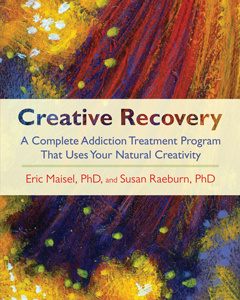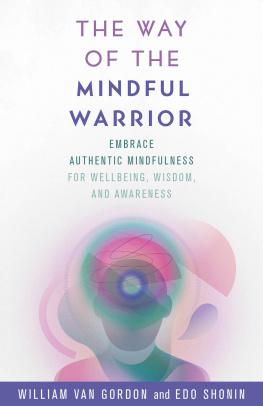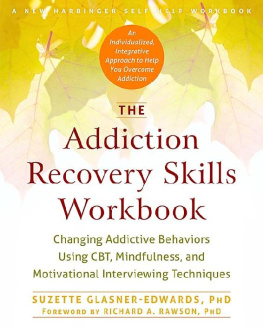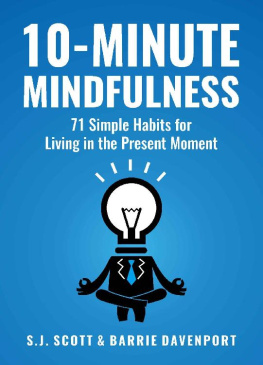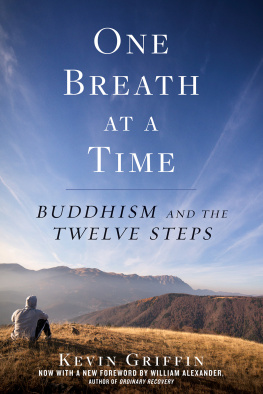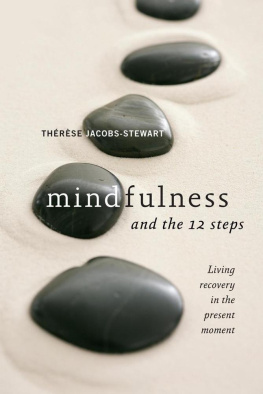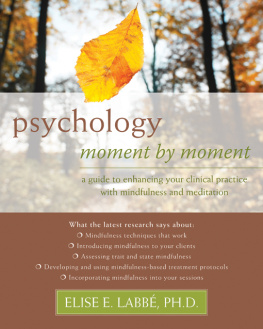
Shambhala Publications, Inc.
Horticultural Hall
300 Massachusetts Avenue
Boston, Massachusetts 02115
www.shambhala.com
1997, 2010 by William Alexander
Cover design by Jim Zaccaria
Illustrations 1997 by Kazuaki Tanahashi
Originally published as Cool Water: Alcoholism, Mindfulness, and Ordinary Recovery.
Thich Nhat Hanhs Five Noble Precepts are reprinted from For a Future to Be Possible: Commentaries on the Five Wonderful Precepts (1993) by Thich Nhat Hanh, with permission of Parallax Press, Berkeley, California. Robert Aitkens gathas are reprinted from The Dragon Who Never Sleeps (1992) by Robert Aitken, with permission of Parallax Press, Berkeley, California. The excerpts from Little Gidding are reprinted from Four Quartets by T. S. Eliot, with permission of the publisher, Faber & Faber Ltd.
All rights reserved. No part of this book may be reproduced in any form or by any means, electronic or mechanical, including photocopying, recording, or by any information storage and retrieval system, without permission in writing from the publisher.
Library of Congress Cataloging-in-Publication Data
Alexander, Bill, 1942
Ordinary recovery: mindfulness, alcoholism, and the path of lifelong sobriety / William Alexander; calligraphy by Kazuaki Tanahashi; with a foreword by Kevin Griffin.
p. cm.
Rev. ed. of: Cool water. 1997.
eISBN 978-0-8348-2272-6
ISBN 978-1-59030-828-8 (pbk.: alk. paper)
1. Alexander, Bill, 1942 2. Recovering alcoholicsUnited
StatesBiography. 3. AlcoholismTreatmentReligious aspectsBuddhism. 4. Buddhist meditationTherapeutic use. I. Alexander, Bill, 1942 Cool water. II. Title.
HV5293.A2A53 2010
362.2928dc22
2010021473
This one is for Toni Delacorte, who came
into my life at just the right moment
not once, but twiceover a remarkable
span of thirty years!
WHEN THIS SMALL BOOK CAME out a dozen years ago (under the title Cool Water), it had a big impacton me and many others. We heard the message loud and clear, a voice crying out in the Twelve Step wilderness, Youre not alone! For those of us whod struggled to align our Buddhist practice with Twelve Step principles, here was someone whod been thereand had returned to tell the story. The line connecting mindfulness and recovery had been clearly drawn.
Bill Alexander forgoes the platitudes of Alcoholics Anonymous and the sanctity of Buddhism to get at the blood and soul of recoverythe personal struggles and the transcendent insights, the wild ride and the dreary hours on a hard chair in a church basement.
Bills writing takes the risk of affirming that what he is feeling now, where he is at this moment, is importantnever claiming to have arrived or to know, but only asserting that the view from here, from his own lived experience, is worth capturing. With the eye of a Beat poet and the teeth of a gonzo journalist, Bills writing is, most of all, alive.
Dont look for your final answer in this book, but only the penetrating vision of a pioneer, one who is still out there on the edge. We need Billto keep us honest, to keep us questioning, and to remind us were still not alone.
KEVIN GRIFFIN
Berkeley, California
Returning to what is
Means going back to the ordinary.
Understanding the ordinary:
Enlightenment.
TAO TE CHING
I WAS HAPPILY SURPRISED when Shambhala Publications contacted me to say that they wanted to publish a revised edition of my book Cool Water. They wondered if Id go along with that. Of course I would.
Since that day, I have had ample time in preparing this brief introduction to turn it into another book entirely and nearly did. My friend, the writer and poet Phil Rice, caught me in time and gently reminded me that its the book being revised, not me.
There is precious little need for you to know much about my life since the first publication. Things have changed, certainly. In most cases, I have changed with those things, often with a fair measure of grace and occasionally with some of my older, defective skills that I thought long buried. Im single now and living in a remote spot in Minnesota. The little boy I wrote about in the first edition of this book, my son Will, is a man now and far away. I have even fewer teeth, my knees dont work, and many of my friends are gone. I sleep late and I dont comb my hair.
Time has passed and, somehow, I havent found it necessary to take a drink or use narcotics, exotic botanicals, or pills of any kind during all those years, with their considerable narrative. The drugs, the booze, the hallucinogens all seemed to have stories to tell me. For a time they hijacked my life and stole the stories my finer self could have told, burying them in deep places in my mind and body. When I was using drugs and alcohol I lived in a world that was not my own. I lived as hostage to chemicals, and, bizarrely, I loved my captors, out of my delusion and fear. But thats for another book.
How have I been able to remain sober all these years? Ive been guided by the central teaching of this book, which I think is best expressed on the very last page:
When youre taking out the garbage, just take out the garbage. If we could just learn that simple lesson, I think all the rest of it would just take care of itself, dont you?
My good friend Win Miller mentioned that paragraph to me one Saturday afternoon as we were driving on a Minnesota backcountry road, through green meadows under cloudless skies. He said that hed been trying to figure out how to get rid of the spiritual clutter in his life while simultaneously getting rid of the material clutter that so inhibited him and his family. He couldnt figure out how to do both. He said hed meditated and then picked up this book and read that final paragraph. He told me, with a smile, that he just went ahead and cleaned his office, content with the joy of the present moment.
If you look deeply, those two paragraphs above contain the entire contents of this small book. There are three principles that inform the book.
- Mindfulness.
- The sacred nature of the ordinary, which I call Ordinary Recovery.
- And encompassing all, the gift of story.
When taking out the garbage, only take out the garbage. When cleaning your office, only clean your office. Maybe theres an inkwell that belonged to your grandfather, hidden under the scraps of paper, and subscription forms to magazines you never filled out anyway, or maybe under all of that is an alabaster egg a child once gave you, or a note you didnt really pay attention to from your spouse.
When you clean off the desk of those scraps of paper, you might find that one ordinary thing that brings an opening to things as they are. For years Ive had a picture of my grandmother Lillis McElroy on my desk. It sat there for many years and I had stopped noticing it. One day, I was pushing a cup of coffee out of the way of my keyboard and lost control of the cup and there was coffee everywhere. I snatched up Lilliss picture and held onto it while I tried to save the other objects and papers on the desk.
When I was done, I noticed the picture still in my hand. So I sat on the black cushion that I keep in my office and I looked at her. I looked at her with what is called nonjudgmental awareness or, my preference, bare attention. I didnt make up any stories, I just breathed and looked deeply at this woman who had fallen in love at fourteen and married at eighteen, eloping from her home in Center Point, Texas. Episode after episode of my life as a young boy in McKenzie, Tennessee, ooded back in as that hijacked narrative of my finer self was reclaimed. The theft of little parts of my life was overturned and my life became more spacious, my story richer as I sat and looked at Lillis, without beckoning to stories but simply letting them come. I knew for the first time that when I was a child Lillis had been the most important figure in my life.
Next page
